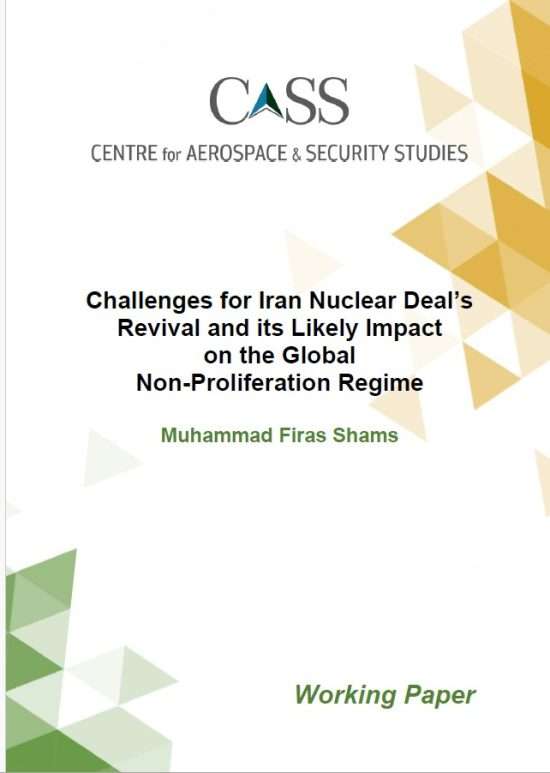Abstract
The revival of the Joint Comprehensive Plan of Action (JCPOA), commonly referred to as the Iran Nuclear Deal, is a daunting test of diplomacy, especially for the Biden Administration as well as Iran’s clerical regime. Back in 2015, this Deal faced a chorus of criticism from detractors who described it as having sunset clauses, which merely postpone Iran’s development of nuclear arsenal. Conversely, its advocates described it as an elaborate design to preclude a country to deceive its way to becoming a nuclear power. Through examination of primary as well as secondary data, this qualitative research evaluates various roadblocks impeding the aforementioned Deal and its restoration outcomes with their concomitant impact on the global nuclear Non-Proliferation Regime (NPR), i.e., what ‘deal’ or ‘no deal’ scenarios could mean for the NPR. The findings show that the JCPOA’s revival is confronted with a number of domestic, regional and international challenges, which will require a diplomatic feat in the backdrop of deep-seated mistrust. However, its revival could help neutralise the notion of NPR’s decline and potentially provide the international community with a rigorous design of verification, especially for countries which may opt to withdraw from the Non-Proliferation Treaty (NPT) in the future. On the contrary, in case the JCPOA is not restored, it could possibly thrust the region, already poised between peace and war, into further militarisation and perhaps a proliferation cascade, a scenario which could jeopardise the calculus of global security.





